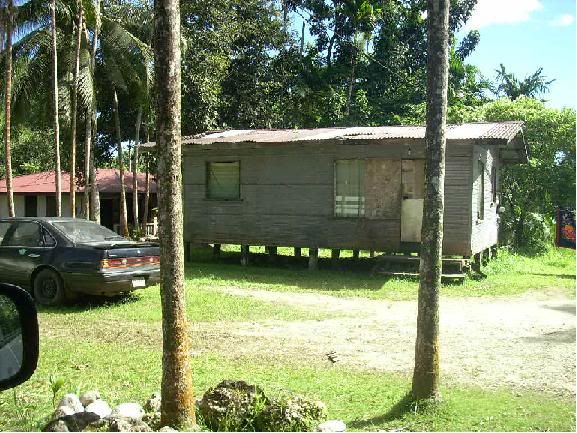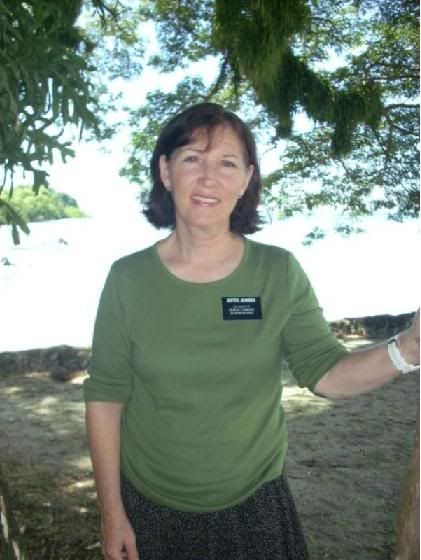
BY: REBECCA BENNETT
While a number of retirees while away the hours on the golf course, Gary Johnsen and his wife, Gail, residents of Northwest Houston, will embark on an 18-month mission trip to the Micronesian islands known as the Republic of Palau.
“It’s always been something I felt like I wanted to do, especially with a companion of my choice,” said Gary, who clocked in his last day of work this January.
As lifelong members of the Church of Jesus Christ of Latter-Day Saints, the Johnsens both served on missions when they were young. They felt a personal call to serve again after listening to Thomas Monson, president of the Church, recently speak at the semiannual, worldwide General Conference, urging more senior couples to serve on missions.
“We hear this man we revere as a prophet speak, and we try to follow his leadership. Because we have other friends that didn’t feel like they wanted to go or needed to go, but we felt in our hearts that we needed to go,” Gail said. “So it’s just kind of a two-part thing: you hear and then you feel.”
When completing the application process, the couple requested they serve as part of the Micronesia Guam Mission, being familiar with the country because Gary had worked a two-year assignment in Guam during his career with Exxon Mobil. Having spoken to mission leadership, they learned they will be serving in Palau, located approximately 125 miles southwest of Guam.
“It’s mostly surrounded by jungle, but it does have air conditioning,” Gary said. “Some people get island fever. It’s kind of like cabin fever in the winter in some places in the United States; you just kind of get cooped up. I never felt that way in Guam. And Palau is one of the most beautiful places in the world.”
The chain of tropical islands, where the economy is largely dependent on tourism, covers just less than 200 square miles of land in total, with an estimated population of 22,000. The Johnsens spent their last week at home in Klein packing two suitcases for a year-and-half’s worth of clothing appropriate for their new home-away-from-home.
“On Palau, the missionaries wear Crocs, so I got a few pairs of those. I think it rains a lot, so people’s shoes get ruined,” Gail said.
With 150 inches of rainfall each year and a narrow temperature range of 80 to 90 degrees, the two are opting for a lighter, cooler wardrobe. For Gary, this includes a number of short-sleeved shirts in the traditional white, collared fashion easily identifiable among Latter-Day Saints missionaries.
It’s a simpler life, and one that is marked by definite sacrifices from typical life in Houston.
“In a way, we kind of move back to when we were students at Brigham Young University,” Gary said. “Poor students.”
Such sacrifices include reverting to dial-up Internet for a pricey $200 a month, the confusion of no marked street names, postal delivery and, as per standard Church missionary rules, no swimming — in a locale known for its scenic coral reefs and ideal snorkeling conditions. The latter is particularly a challenge for Gary, who lists snorkeling as one of his favorite hobbies.
That said, he and his wife are ready to be put to work.
“We are so taught in this Church to be good people and to help others,” Gary said. “Whether those others are members of our congregation or not doesn’t matter, what really matters is trying to do good things, so we’re hoping Gail and I can find some good things that we have the opportunity to do for the people we’re serving.”
While in Palau, the Johnsens will aid in a variety of tasks, from assisting with the religious education of young Church members on the island, helping with administrative work and possibly serving in the local hospital or library. In addition, being pianists, the two hope to provide music lessons to locals.
“A lot of times, in the small branches of the Church, having people that can play piano in church is kind of a big deal, and we can train people for that,” Gary said.
The Johnsens will be serving on the island with two pairs of younger LDS missionaries. With their age and experience, the two will offer different strengths in service than those of their college-age counterparts.
“I think obviously, we have a vast amount of experience in how the Church runs. We’ve lived in a lot of different places over the years,” Gary said. “We’ve traveled kind of widely, and every place we’ve been and visited, we’ve always gone to church locally. Because we’ve lived a lot of different places, I think we’ll have some experiences that will be helpful, we hope, as we serve with the local leadership at the Church there.”
Being older and married also means that the Johnsens have a family of their own, including seven children. Fortunately, the Church allows them greater flexibility than young missionaries, who can only call home on Christmas and Mother’s Day.
The couple will be squeezing in a family wedding in Provo, Utah, before embarking on their mission trip this upcoming week. They are free to return to the States at their own expense to attend other weddings, births or deaths.
The Johnsens are just two of more than 52,000 missionaries from the Church of all ages.
“Our Church has always been a proselyting church. We take the directive from the bible in Matthew where Jesus said, ‘Go you therefore, and teach all nations,’” said Ramona Siddoway, public affairs representative for the Church in the Klein and Champions area. “So we really believe it’s a great privilege to be able to share this message with people around us.”
Missionaries serve in 350 locations in all imaginable corners of the world, including tiny islands with cultures yet untouched by too many Western luxuries.“One of the funny things that I found about Guam — and I think that it’s true throughout Micronesia — is you never ask people where they live. You always ask people where they stay,” Gary said. “Because housing is usually in pretty short supply. It’s real expensive, so a lot of times people will stay with one relative for a while and then when their welcome wears out, they will go stay with someone else.”
The Johnsens will be doing a lot more than just “staying” in Palau, although they are keeping their Houston home and will return to life as usual after the mission. In the meantime, Gary will become “Elder Johnsen” and his wife, “Sister Johnsen.” Together, they will serve as they believe they have been called to do.
“There’s a need for missionaries to serve all over the world,”Gail said. “So we just felt like that was something we could do.”
Posted: Friday, October 7, 2011 10:14 am | Updated: 10:33 am, Fri Oct 7, 2011.
Find article on YourHoustonNew.com
HERE




